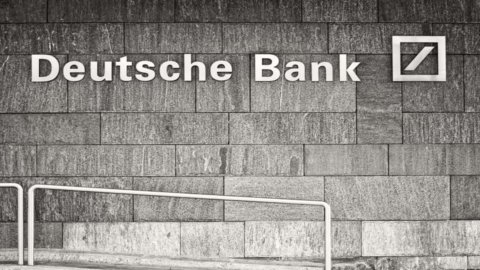Why don't companies invest in Europe? Why is a huge infrastructure deficit building up, even though interest rates have never been lower? Why don't banks give credit anymore? What happened to the mechanisms that fuel long-term growth? These are the questions weighing on the future of Europe and which a research promoted by Assonime and the CEPR, with the support of Emittenti Titoli (a company chaired by Luigi Abete), presented today at a meeting at the Bocconi University in Milan, seeks to answer.
The meeting is aimed at the academy and the main research centers to promote original research that will help respond to these problems and to draw up a Final Report with precise operational proposals. The project has so far produced a Green Paper (signed by Alberto Giovannini, Colin Mayer, Stefano Micossi, Carmine di Noia, Marco Onado, Marco Pagano and Andrea Polo) which demonstrates how the serious problems of today's Europe have been aggravated, but not determined by the financial crisis. Therefore, the measures taken so far in Brussels or in the individual capitals on the edge of the emergencies that have opened up cannot be the definitive answer to prevent Europe from embarking on a long process of low growth and therefore of decline. In particular, the Green Paper demonstrates that European companies still depend too much on bank credit and that Italy is the country where this distortion is most evident because the industrial structure is too biased towards small and medium-sized businesses, lacking real alternatives to the traditional loan. Therefore, unlike other countries, in Italy the financial market was unable to counterbalance the effects of the credit crunch.
Furthermore, the financial situation of companies has changed profoundly in the years of the crisis, accentuating various elements of weakness and above all opening an ever-widening gap between the more robust and the more fragile ones, which obviously are now struggling to obtain additional credit. This means that the credit crunch is not only determined by supply factors, i.e. by the behavior of banks, but also by demand factors. The data in the Green Paper show that the first type of factor prevailed in the most acute moments of the crisis (fortunately now behind us) but that the second has subsequently assumed ever greater weight. And again: European companies (and Italian ones in particular) are under-capitalised, also because they are too reluctant to list shares. At the base there is an excessive fear of opening up share ownership, therefore a general problem of governance, which makes the short-term advantages of control prevail over the long-term ones of growth in size.
But the crisis has shown that the short-sightedness of corporate decisions is not limited to small and medium-sized enterprises: it is a more general problem that has hit banks, which have favored short-term results over solidity; it hit the financial markets, now dominated by trades that take place in the space of the blink of an eye; it dominated institutional investors, who sharply narrowed their investment horizons.
Colin Meyer, who edited the Green Paper, wrote in a recent book that the company has betrayed its natural vocation to grow and invest in the long term. The research that the Bocconi seminar solicits must help to understand why this could happen and therefore to identify financial instruments, contractual forms, institutional solutions for the future.
Attachments: Restarting European Long-Term Investment Finance.pdf





